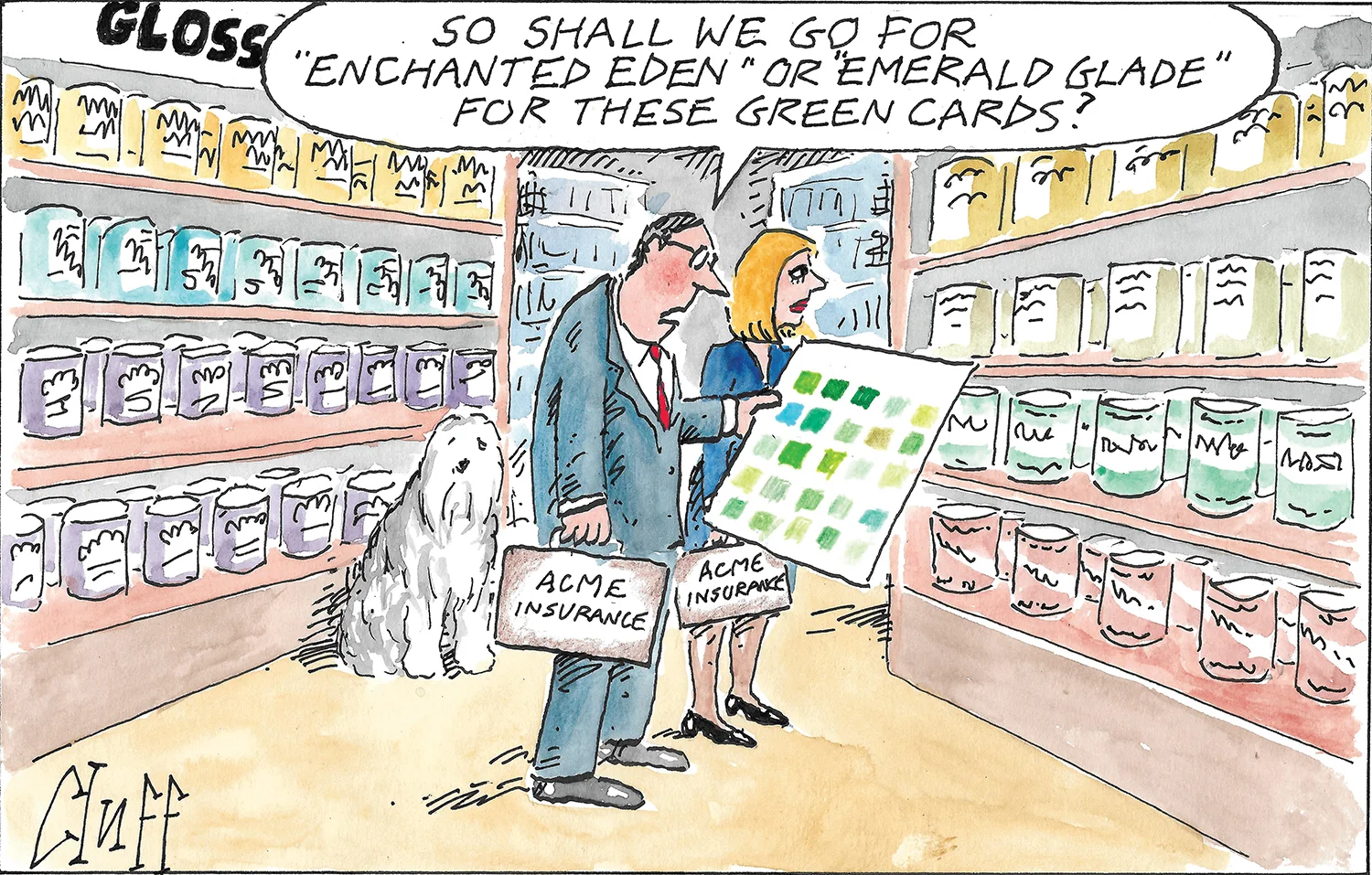
Analysis: What happens to motor after March 29?

Need to know
-
2.5 million private vehicles travel to the European Economic Area each year, along with 80,000 to 100,000 haulage vehicles
-
If we have a no-deal Brexit, motorists will have to carry certificates of insurance when driving in Europe
-
The absence of EEA insurer claims representatives in the UK would mean that personal injury claimants would have to pursue those claims directly in the countries where the accidents occurred
In the event of a no-deal Brexit, motorists will have to carry green cards in the EU. But that’s just the tip of the iceberg
For the past few months, office supply trucks have been delivering dyed paper to insurers across the country. From the end of the month, if we have a no-deal Brexit, motorists will have to carry certificates of insurance when driving in Europe. And they need to be printed on green paper.
But that’s the tip of the iceberg in terms of potential changes coming to the way we drive on the continent.
At the time of going to press, in the event of a no-deal Brexit, the government was due to consider an amendment that would rip up the rulebook on how personal injury claimants seek compensation from non-fault accidents in Europe.
Green cards
Back in 1949, before the creation of the European Union, and free movement, motorists were required to carry a certificate of insurance when travelling in Europe.
Presumably because of language barriers, those certificates were printed on green paper. They would serve as proof to border security that the vehicle was insured to drive in Europe.
Years later, the need to carry physical green cards was abandoned – to much relief – for motorists across the European Economic Area.
However, Brexit threatened to change all that. The Association of British Insurers has been lobbying for more than a year in Europe for the UK to abide by the current system. Deals were made at every level, but – by the time of going to press in late February – the European Commission had not yet signed off on them.
In October last year, the Motor Insurers Bureau wrote a “strong” message to members that they would need to prepare for a no-deal Brexit and the need to issue physical green cards.
A later message from MIB CEO Dominic Clayden, last month, said: “The likely numbers involved and the scale of the operation required to issue them should not be underestimated.”
According to the Department for Transport, some 2.5 million private vehicles travel to the European Economic Area each year, along with 80,000 to 100,000 haulage vehicles.
Motor: in numbers
4300
The annual claims UK motorists make in the UK against foreign representatives of EEA insurers under Fourth Directive rules
700
The number of UK claims made against the MIB where the EEA vehicle was untraceable
2.5 million
The number of private vehicles that travel to the European Economic Area each year, along with 80,000 to 100,000 haulage vehicles
200,000
The number of green card requests LV expects every year, which will likely cost an additional £170,000 for postage and green paper
The preparations have continued in earnest. LV anticipates receiving 200,000 green card requests a year, which will likely cost an additional £170,000 for postage and green paper.
A spokesperson added: “There will also be project costs for moving to the fully automated solution, which we’re creating.
“We’re working hard to ensure that both we and our brokers will be ready to issue green cards as soon as it becomes necessary, in order to ensure that our customers can continue with their travel plans without difficulty.”
Neil Mercier, head of motor insurance at Axa UK, said the biggest logistical challenge was additional call volume. However, he said if the green card system was introduced, the hope was it would be a temporary measure.
He added: “We will try to deal with it in the most cost efficient way for us. We don’t want to build a new IT system for it, because it might last for a month, or six months, but it’s clear it’s not going to last for two years.
“However, we’re looking to build some macros that will help the people in a call centre to press a couple of buttons that will deliver it. It will cost some money but we’re trying our best to keep that under control.”
Allianz said it was looking at developing automation so that additional staff weren’t required to take on call volumes.
Jonathan Dye, who was at the time of interview still head of commercial motor at Allianz, said: “That will include web portals and robotics processing. We have to commit now to building that. If the worst case scenario does happen, and we do need to issue green cards, at least we’re not incurring additional costs over the long term. Ultimately we are containing the costs for our customers.”
He said Allianz had estimated supply based on the numbers from the Department for Transport, divided by the company’s market share. However, that didn’t factor in seasonality. More people drive to the continent over the summer.
However, if green cards were the only changes to the motor landscape as a result of Brexit, it would amount to a minor inconvenience. A bigger, and far more troubling development, is the impact of the loss of the Fourth Motor Insurance Directive in the event of a no-deal.
The directive, also known as ‘protection of visitors’ rules, has provided a clear and transparent framework for cross-border motor claims in the EEA for the past decade.
In addition, the government has tabled an amendment to the rules, which in the event of a no-deal Brexit at the end of the month, would radically change the way things currently work.
Protection of visitors
At the root of the laws, is the idea that claimants involved in accidents abroad, can pursue claims in their own country of residence.
The directive requires EEA insurers to appoint claims representatives in each member state. So for example, where a UK motorist has been involved in a non-fault accident with a French vehicle in France, the UK motorist has to date been able to make a claim against the French insurer’s claims representative in the UK.
Similarly, when a UK motorist was involved in an accident in the EEA caused by an unidentified vehicle, they have claimed compensation through the MIB in the UK.
Under a multilateral agreement, the MIB was then able to claim the money through its equivalent body in the EEA member state where the accident occurred.
The MIB estimates that 5000 UK road traffic victims make claims under these arrangements each year. Of those, 4300 claims are made against insurers, while 700 claims are made against the MIB.
Brexit would remove the requirement for EEA insurers to establish a claims representative in the UK, and so – if the law remained unamended – compensation of UK motorists in the future involved in non-fault claims abroad would fall to the MIB. However, the body would no longer be able to claim back through its equivalent body.
A government note on this suggests: “The cost of these additional claims would be passed on to insurers through the MIB’s member levy, who may then pass this on to UK motorists in the form of higher motor insurance premiums. UK motorists would be paying for traffic accidents caused by EEA motorists in EEA Member States on an ongoing basis.”
Keen to avoid this problem, the government has filed an amendment. Without the amendment, the Department for Transport said, the MIB would continue paying compensation “unilaterally”, without being able to claim from its counterparts in France.
Access to justice
The alternative of the UK exiting the Fourth Directive in its entirety would also have an additional, undesirable effect.
The absence of EEA insurer claims representatives in the UK would mean that personal injury claimants would have to pursue those claims directly in the countries where the accidents occurred.
This would mean that – in the case of the UK motorist in France – claimants would have to claim against the French insurer directly. Or else pursue the case through the French courts. In the case of an untraced vehicle, the claimant would need to seek compensation from the French MIB equivalent, the Fonds de Garantie.
Brett Dixon, president of the Association of Personal Injury Lawyers, said it would create real barriers for claimants.
“You’re at your lowest ebb, perhaps you’re injured, and you need to deal with an insurance company, or perhaps initiate proceedings, in a foreign jurisdiction,” he said.
“It’s bad enough if you have to deal with it if you’ve been injured through no fault of your own in a UK jurisdiction, with that extra complication on top, it’s dreadfully difficult.”
He added: “That’s the real loss that will make things difficult for everyone concerned, including insurers that are seeking to recover their outlays for damage to the vehicles.”
Bilateral agreements
The MIB has held regular meetings on Brexit for members.
A letter from the last meeting on 15 January, from Clayden said: “The European Commission has not responded to pressure to set a date for the UK to be included in the green card-free circulation area following its departure from the EU.
“One of the participants in our meeting reported that informal signals from the Commission were very negative on this point. It, therefore, remains imperative for insurers to prepare to issue green cards – and time is now very short.”
He said the MIB was also working to sign bilateral agreements with its counterparts in EEA countries over the continuation of the MIB’s role as an information sharing body. Although victims would still need to seek compensation in the courts where the accident occurred.
The body said it had managed to get several bilateral agreements signed. Clayden said in the January letter: “There are two agreements covering victims of insured and uninsured drivers, and we have made good progress in getting them signed; MIB agreed to list the agreements signed on its website and this will happen shortly.”
He added, however: “If any of these bodies refuse to sign our bilateral agreement covering victims of uninsured drivers (which includes the necessary reciprocity), UK nationals and residents will not be able to claim compensation in the event of an accident involving an uninsured or untraced driver in the country concerned.”
He added: “In such circumstances, the MIB would be forced to seek an amendment to its agreements with [the government] allowing it to cease making compensation available to residents of the country concerned in the event of their citizens becoming victims of accidents in the UK.
“We are working hard to avoid this and have no wish to change our current practice of compensating victims irrespective of their nationality or country of residence – but this will only be possible if the other party plays ball.”
Editor’s note: The landscape around Brexit is quickly evolving. This feature was written at the end of February. The coming days and weeks may see many of the issues mentioned here resolved, depending on if the UK secured a deal with the European Union prior to 29 March.

Only users who have a paid subscription or are part of a corporate subscription are able to print or copy content.
To access these options, along with all other subscription benefits, please contact info@postonline.co.uk or view our subscription options here: https://subscriptions.postonline.co.uk/subscribe
You are currently unable to print this content. Please contact info@postonline.co.uk to find out more.
You are currently unable to copy this content. Please contact info@postonline.co.uk to find out more.
Copyright Infopro Digital Limited. All rights reserved.
As outlined in our terms and conditions, https://www.infopro-digital.com/terms-and-conditions/subscriptions/ (point 2.4), printing is limited to a single copy.
If you would like to purchase additional rights please email info@postonline.co.uk
Copyright Infopro Digital Limited. All rights reserved.
You may share this content using our article tools. As outlined in our terms and conditions, https://www.infopro-digital.com/terms-and-conditions/subscriptions/ (clause 2.4), an Authorised User may only make one copy of the materials for their own personal use. You must also comply with the restrictions in clause 2.5.
If you would like to purchase additional rights please email info@postonline.co.uk








